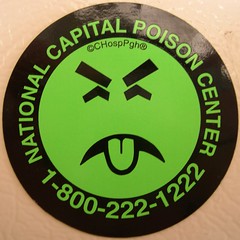House Democrats: Excuse us while we backslide.

By CHARLES BABINGTON Associated Press Writer © 2007 The Associated Press
WASHINGTON — House Democrats are suddenly balking at the tough lobbying reforms they touted to voters last fall as a reason for putting them in charge of Congress.
Now that they are running things, many Democrats want to keep the big campaign donations and lavish parties that lobbyists put together for them. They're also having second thoughts about having to wait an extra year before they can become high-paid lobbyists themselves should they retire or be defeated at the polls.
The growing resistance to several proposed reforms now threatens passage of a bill that once seemed on track to fulfill Democrats' campaign promise of cleaner fundraising and lobbying practices.
"The longer we wait, the weaker the bill seems to get," said Craig Holman of Public Citizen, which has pushed for the changes. "The sense of urgency is fading," he said, in part because scandals such as those involving disgraced lobbyist Jack Abramoff and former Rep. Duke Cunningham, R-Calif., have given way to other news.
The situation concerns some Democrats, who note their party campaigned against a "culture of corruption" in 2006, when voters ended a long run of Republican control of Congress. Several high-profile issues remained in doubt Friday, five days before the House Judiciary Committee is to take up the legislation.
They include proposals to:
_Require lobbyists to disclose details about large donations they arrange for politicians.
_Make former lawmakers wait two years, instead of one, before lobbying Congress.
_Bar lobbyists from throwing large parties for lawmakers at national political conventions.
All appeared headed for adoption in January when the Senate, with much fanfare, included them in a lobby-reform bill that passed easily. But the provisions, plus many others in the bill, cannot become law unless the House concurs — and that's where feet are dragging.
The issues are in danger of being dropped from the House version, a Democratic member close to the negotiations said Thursday, speaking on condition of anonymity because sensitive discussions were continuing.
The snags are frustrating to advocates in and out of Congress who want more restrictions and greater transparency in lobbying and fundraising. Early this year, they appeared on the edge of victory.
Within hours of taking control of the House and Senate, Democrats engineered rule changes to bar lawmakers and their aides from accepting meals, gifts or trips from lobbyists or groups that employ lobbyists.
They also made it far more difficult for lawmakers to slip targeted items, known as earmarks, into spending bills without divulging the source. Such "pork projects" have greatly benefited some companies with well-connected lobbyists.
These rule changes are now in effect in the House. But they will not apply to the Senate unless both chambers reconcile a lobbying bill that the president signs into law.
"Members of Congress ignore this issue at their peril," said Rep. Chris Van Hollen, D-Md., who chairs his party's 2008 House campaign committee. "The public wants a Congress that is open and accountable."
The chief stumbling block in the House centers on whether to require disclosures of a fundraising practice called bundling. It involves lobbyists soliciting and collecting campaign donations from other people and then presenting them in one package to the targeted candidate.
Under current law, each individual check-writer must report his or her donation. But the lobbyist-bundlers, who use the practice to ingratiate themselves to politicians, often go undetected.
Meaningful disclosure of bundling "is the defining issue of this bill" and must remain in the House version, said Fred Wertheimer, president of Democracy 21, a private group that supports greater transparency in government.
However, resistance from some House members is so strong that Democratic leaders are thinking of dropping the bundling language from the bill, and perhaps allowing proponents to offer it later as an amendment or separate legislation.
Some House members also oppose the Senate bill's tougher restrictions on retired lawmakers who plan to become lobbyists. Under current law, such retirees can immediately begin drawing pay for lobby-related activities so long as they do not contact former colleagues for one year.
The Senate bill would extend the "cooling off" period to two years, and apply the ban to all lobbying activities, not just direct contacts with lawmakers.
Some House members also dislike a Senate provision that would bar lobbying groups from throwing parties in honor of lawmakers at national nominating conventions. Critics call the practice a way for interest groups to ingratiate themselves with powerful officials.
Meanwhile, public advocacy groups want the House and Senate to adopt tougher reporting requirements for groups that hire lobbyists to help organize supposedly grass-roots campaigns to influence Congress. One proposal would require disclosures by lobbying firms that receive at least $100,000 in a quarter for "paid communications campaigns" aimed at mobilizing the public on a given issue.
Groups such as Common Cause and Democracy 21 say massive special-interest campaigns can largely hide their donors' identities because current disclosure laws apply only to direct lobbying of Congress.
But organizations spanning the political spectrum oppose the idea, saying it could discourage citizens from exercising their right to petition the government. Groups urging lawmakers to reject the proposal include the American Civil Liberties Union, National Right to Life Committee and Eagle Forum.
House members and aides said it was unclear whether the grass-roots proposal, which is not in the Senate bill, will be added to the House measure.
___
The Senate bill is S. 1
Labels: congress, corruption, democrats, donations, fundraising, lobbying, lobbyists, parties, politics, promise, reform






